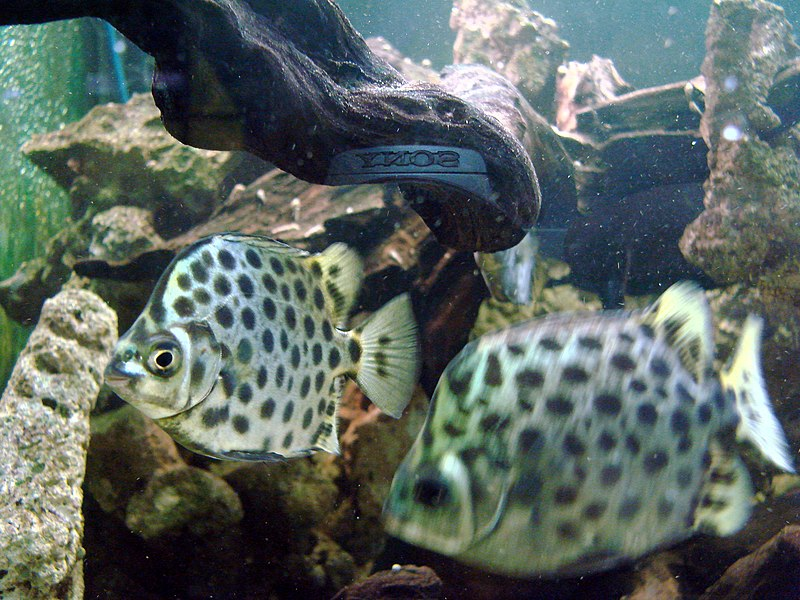
Fish: A Fascinating Underwater World of Diversity and Wonder
In the depths of the world’s oceans, rivers, and lakes, a mesmerizing array of aquatic creatures exists, captivating our imagination and drawing us into their mysterious realm. Among these remarkable creatures, fish reign supreme, representing a diverse and unique group that has captured the attention of scientists, anglers, and nature enthusiasts alike. From their incredible adaptations to their vital ecological role, fish continue to inspire wonder and admiration. In this article, we will delve into the fascinating world of fish, exploring their diversity, behavior, and significance in our ecosystem.
- The Rich Diversity of Fish
Fish, an incredibly diverse group of vertebrates, encompasses over 30,000 known species and still counting. From the tiny, luminous lanternfish in the ocean’s depths to the majestic, long-lived sturgeon, each species boasts distinctive characteristics and features. These aquatic wonders come in a myriad of shapes, sizes, and colors, adapting to various aquatic environments over millions of years. From the stealthy predators like sharks to the delicately beautiful reef fish, the underwater world offers a stunning variety of fish species that continue to surprise and astonish scientists and enthusiasts alike.
- A Masterclass in Adaptations
One of the primary reasons for fish’s remarkable success and survival is their impressive adaptability. Countless millennia of evolution have equipped them with extraordinary tools to thrive in diverse ecosystems. For instance, some fish have evolved camouflage techniques to hide from predators, while others have developed powerful electric organs to navigate and communicate. Certain species exhibit unique reproductive strategies, such as male seahorses carrying their young in pouches. Fish also have an exceptional array of sensory organs, enabling them to detect the slightest vibrations, changes in pressure, and variations in water temperature.
- Ecosystem Engineers
Fish play a pivotal role as ecosystem engineers, shaping their habitats and influencing other species’ behaviors. They contribute to the cycling of nutrients in aquatic ecosystems through their feeding habits, where predatory fish help control populations of smaller prey species, maintaining a balanced ecosystem. Additionally, some fish, like parrotfish, are instrumental in coral reef formation as they graze on algae, allowing coral polyps to settle and create reef structures. By shaping their environments and interacting with other species, fish contribute significantly to the overall health and stability of aquatic ecosystems.
- Threats and Conservation
Despite their adaptability and importance, fish face numerous threats that jeopardize their survival. Overfishing, habitat destruction, pollution, and climate change are just a few of the challenges they encounter in the modern world. Many fish populations have dwindled, with some species now facing the brink of extinction. Conservation efforts have become essential to preserve the delicate balance of marine and freshwater ecosystems and protect the rich biodiversity of fish species. Sustainable fishing practices, marine protected areas, and public awareness campaigns are some of the measures taken to safeguard these mesmerizing creatures for future generations.
- Fish in Human Culture
Throughout history, fish have held a significant place in human culture and mythology. From being symbols of fertility and luck in some cultures to representing spiritual transformation in others, fish have left an indelible mark on human art, literature, and beliefs. Fishing has been a vital source of sustenance for countless communities worldwide, fostering a profound connection between humans and these aquatic beings. Fish also continue to be a source of inspiration for contemporary artists and writers, reflecting their enduring allure and importance in our collective imagination.
Conclusion
In the vast and uncharted expanse of our oceans and waterways, fish reign as fascinating ambassadors of the underwater world. Their astonishing diversity, incredible adaptations, and critical role in maintaining ecological balance make them an essential component of Earth’s rich biodiversity. However, with increasing threats to their existence, it is incumbent upon us to protect and cherish these remarkable creatures. By valuing and preserving fish and their habitats, we can ensure that this mesmerizing aquatic realm continues to captivate and inspire generations to come.





